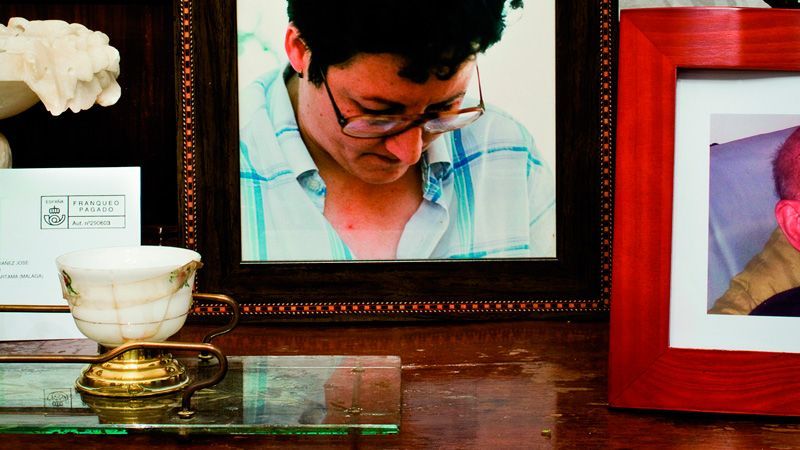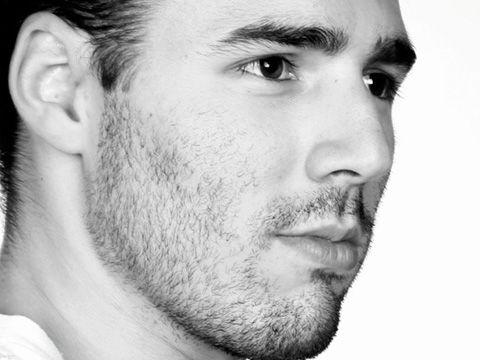THE BINDING GHOSTS

José María Escalona
From 30 Jan to 30 Mar 2014
EL PALMERAL. ESPACIO INICIARTE
CATALOGUE
José María Escalona introduces us to a universe that is individual as well as collective that integrates three clearly distinguished parts that, in turn, allude to each other, both thematically and conceptually, since bridges are established between them, connecting links that configure the sense, and total and overall meaning of the work. In all of them, the photographs indicate certain links, some of which are extinct, dead, outdated and implicit between their person and the environments captured, and others that are new and established in the here and now. This is a reference to the nature itself of the photographic act, thus establishing intrinsic reflection about the environment itself, and about how the camera makes what is ephemeral and transitory lasting and eternal through images of elements that remind us of other experiences.
‘Reliquias ausentes’ (Absent relics) is one of the phases of this project, and it refers to the inventory of objects that make up a family environment in which the artist experienced his childhood, which could have been yours. These motifs captured, due to their lack of sophistication and their kitsch appearance, typical of traditional rural Spain, acquire a collective meaning, since it is their shapes and formal composition as a polyptych that makes the spectator able to identify and recall their own memories.
The series ‘El último rastro’ (The last trace) is represented in a more concrete fashion, since it is through these images that we can witness the absence of now obsolete family members, and this is introduced into the latter through photographs of their photographs. With this proposal, Escalona goes a step further than in the previous phase; now he is fleeing from human absence to denote its presence.
Lastly, ‘Diario simultáneo del amor (2011 – )’ (Simultaneous love diary) is the last of these phases, in which the author talks about his present, the current situation he is experiencing, and what he wants his future to be, in his new life. With this type of act, he aims to be reborn and live daily without burdens that keep him from being happy, without obstacles; thus, the taking of these photographs is direct without technical concerns of any kind (such that the camera used is an automatic analogue, through which expressive importance is acquired, even in those in which the photo is not taken properly due to a technical fault).
Being born again implies dying, and to die with the option of pure rebirth, liberation is required.
The exhibition catalogue features an essay by Juan Francisco Rueda ‘Somos casa. Sobre un ejercicio catártico de inmersión en el pasado’ (We are a house. On a cathartic exercise of immersion in the past).
TAGS

Málaga, 1987
Artistic Photography at the San Telmo School of Art, Málaga.
Collective exhibitions: 2013 EUTOPÍA FESTIVAL Youth Institute of Andalusia. Córdoba. UNDERGROUND 1.0. Cruzcampo foundation Room. Culture Area. Málaga City Council. DILEMAS DE GÉNERO. Central Gallery. University of Málaga. Málaga. DESENCAJA. Plastic Arts Contest. Youth Institute of Andalusia. Málaga. 2012 STAND-BYES. Provincial Cultural Centre. Málaga Provincial Council. Málaga. BLUE: to just disappear completely. Elegetebefest. Chela Mar room. Málaga. LATITUDES. PAISAJE Y FOTOGRAFIA. Moreno Villa Room. Málaga Provincial Council. Málaga. VIDEOTERAPIA. Caja Blanca exhibition area. Málaga. 2009 I BOLSA DE COMPRA DE BB.AA. Unicaja Foundation and University of Málaga. Espacio Emergente room. Málaga.2008 CONFIGURACIONES. University of Málaga. Rectorate exhibition room. Málaga.
Acquisitions: 2013 DESENCAJA 2012. Plastic Art Contest. The work was acquired by the Youth Institute of Andalusia. Andalusia Regional Council. 2009 Work acquired by the Faculty of Philosophy and Literature Purchasing Department. University of Málaga. Málaga.
Works in Institutions: 2013 Youth Institute of Andalusia. 2009 University of Málaga.











